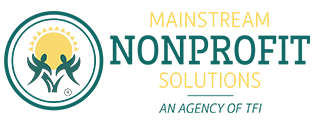Grant writing is arguably the least desirable job duty in the non-profit industry, yet it is one of the most essential skills needed to receive funding. While finding a writer who has the time, technical skillset, and ability to articulate is one battle—developing a compelling proposal that peaks the funder’s interest is the real challenge at hand. Writing responsive grants is often an impediment for non-profits due to the jargon of funder requirements, the scrutinizing evaluation criteria, meticulous details such as font type, and the pressure to complete the application by an unforgiving deadline. So, if you do have the time and resources, how do you write a winning proposal?

Say more, by writing less—While most grant applications provide a page limit, often writers will want to utilize every inch of space with big buzz words and long run-on sentences. Although speaking the funder’s language is vital, those extra transition words, repetitive thoughts, and squeezing insignificant statistics into a small text box will have the proposal evaluation team feeling weary. Upon the final review before submitting, carefully consider how each sentence contributes to the overall goal, is the same verb being used repeatedly, or can this be a graphic?
Be personal, not anecdotal—Funders are often seeking standout organizations that can clearly articulate their value-add. For organizations that have significant experience, it is important to communicate those personal success stories that competitors may not have done or write to how approaches have been tried and proven and not that they “may” work. Funders are seeking evidence and confidence. Demonstrate that your organization has trust in what is being proposed and a firm belief that their funder dollars will be put to good use.
Be responsive, but not complacent—As responders to grant opportunities, organizations are often bound to the funder requirements. Once the funder has developed what they envision to be a solution, they seek responders that will fulfill their request. Commonly, the writer and/or organization may not agree to the solution, but as a responder, you must strike a balance by addressing the funder’s solution while also intertwining your organization’s unique strategy to achieve it.
For more tips on how to write a winning proposal, contact Mainstream Nonprofit Solutions.

